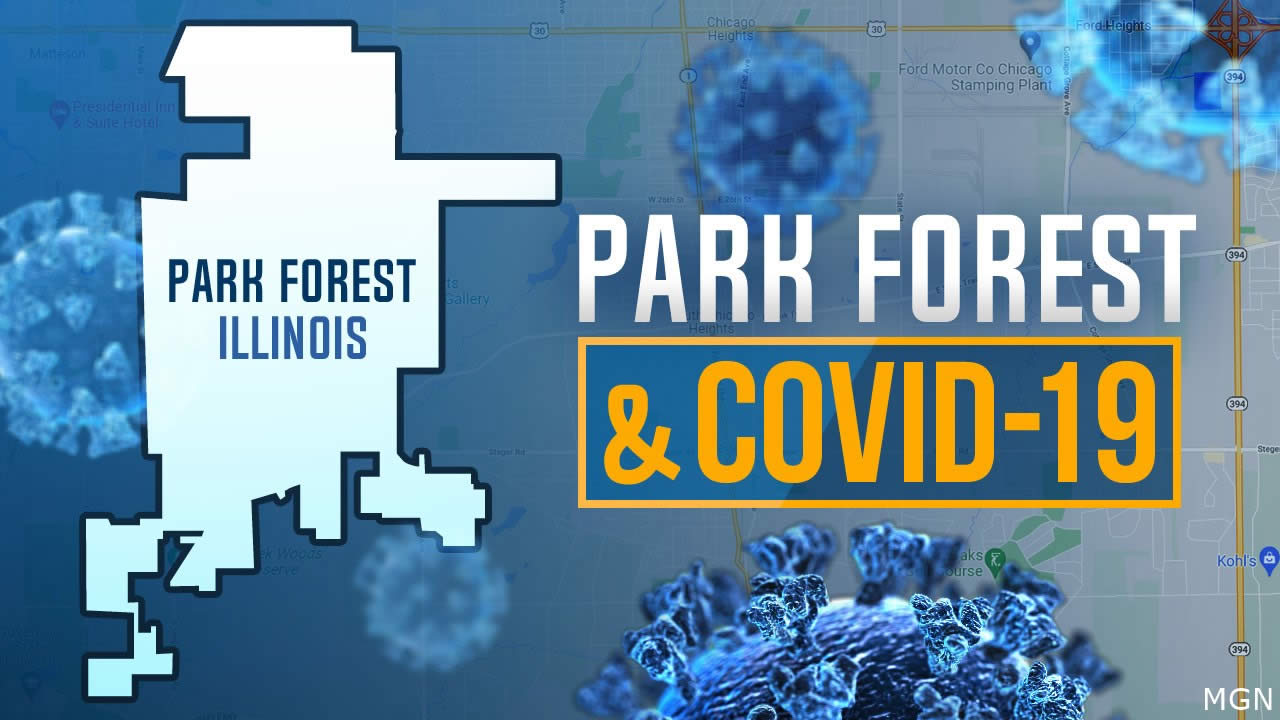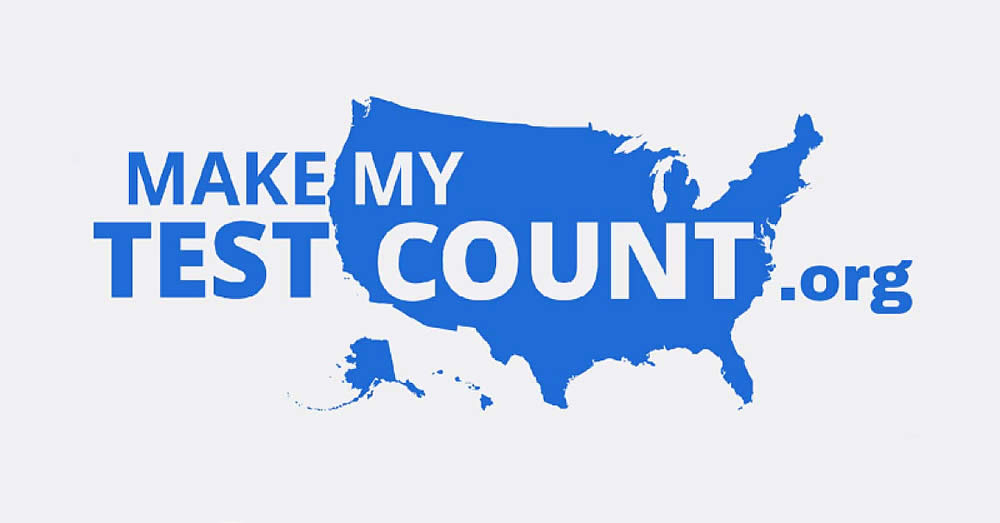
Park Forest, IL-(ENEWSPF)- The following is essential information about COVID-19. This article is offered for free. No subscription is necessary to access it.
If anyone has information that they believe should be added to this article, please email us at [email protected].
This information comes from the Village of Park Forest, the Will County Health Department, the Centers for Disease Control, and the Illinois Department of Public Health.
In response to the COVID-19 pandemic, Gov. JB Pritzker has ordered Illinois residents to stay at home. Executive Order No. 10 requires all residents to stay home, with exceptions for essential needs or business activities. Gatherings of 10 people or more are prohibited. The order extends through April 30, 2020.
Will County outlines steps per the CDC if someone is sick. These are:
1. Stay home except to get medical care
- Stay home: Most people with COVID-19 have mild illness and are able to recover at home without medical care. Do not leave your home, except to get medical care. Do not visit public areas.
- Stay in touch with your doctor. Call before you get medical care. Be sure to get care if you have trouble breathing, or have any other emergency warning signs, or if you think it is an emergency.
- Avoid public transportation: Avoid using public transportation, ride-sharing, or taxis.
2. Separate yourself from other people in your home, this is known as home isolation
- Stay away from others: As much as possible, you stay away from others. You should stay in a specific “sick room” if possible, and away from other people in your home. Use a separate bathroom, if available.
- See COVID-19 and Animals is you have questions about pets.
3. Call ahead before visiting your doctor
- Call ahead: Many medical visits for routine care are being postponed or done by phone or telemedicine.
- If you have a medical appointment that cannot be postponed, call your doctor’s office, and tell them you have or may have COVID-19. This will help the office protect themselves and other patients.
4. If you are sick wear a cloth covering over your nose and mouth
- You should wear a cloth face covering, over your nose and mouth if you must be around other people even at home).
Note: During the COVID-19 pandemic, medical-grade facemasks are reserved for healthcare workers and some first responders. You may need to improvise a cloth face-covering using a scarf or bandana.
5. Cover your coughs and sneezes
- Cover: Cover your mouth and nose with a tissue when you cough or sneeze.
- Dispose: Throw used tissues in a lined trash can.
- Wash hands: Immediately wash your hands with soap and water for at least 20 seconds. If soap and water are not available, clean your hands with an alcohol-based hand sanitizer that contains at least 60% alcohol.
6. Clean your hands often
- Wash hands: Wash your hands often with soap and water for at least 20 seconds. This is especially important after blowing your nose, coughing, or sneezing; going to the bathroom; and before eating or preparing food.
- Hand sanitizer: If soap and water are not available, use an alcohol-based hand sanitizer with at least 60% alcohol, covering all surfaces of your hands and rubbing them together until they feel dry.
- Soap and water: Soap and water are the best option, especially if hands are visibly dirty.
- Avoid touching: Avoid touching your eyes, nose, and mouth with unwashed hands.
See all steps from the CDC here
What You Can Do to Prevent Illness
The Will County Health Department emphasizes that there is currently no vaccine to prevent coronavirus disease 2019 (COVID-19). The best way to prevent illness is to avoid being exposed to this virus. The virus is thought to spread mainly from person-to-person:
- Between people who are in close contact with one another (within about 6 feet).
- Through respiratory droplets produced when an infected person coughs or sneezes. These droplets can land in the mouths or noses of people who are nearby or possibly be inhaled into the lungs.
It may be possible that a person can get COVID-19 by touching a surface or object that has the virus on it and then touching their own mouth, nose, or possibly their eyes, but this is not thought to be the main way the virus spreads.
There is evidence too that an infected person does not need to cough or sneeze but the virus may be exhaled from such a person simply by breathing. Consider how second-hand smoke travels to understand this phenomenon.
The Will County Health Department is continuing operations but closed its doors to both clients and staff on Monday, March 30, to prevent the spread of COVID-19.
“For the safety of our clients and staff, and due to the number of Coronavirus cases we are working on, we have decided it is safest to work remotely,” said WCHD Executive Director Sue Olenek. “After our first employee positive test, numerous other staff members were able to be tested at the drive through testing for first responders and health care workers at the Joliet Walmart and Chicago locations,” WCHD Executive Director Sue Olenek explained.
If You Feel Sick
If you suspect you are sick, the Will County Health Department recommends calling your doctor. If you think you have been exposed to COVID-19 and develop a fever and symptoms of respiratory illness, such as cough or difficulty breathing, call your healthcare provider immediately.
Older adults and people who have severe underlying chronic medical conditions like heart or lung disease or diabetes seem to be at higher risk for developing more serious complications from COVID-19 illness, the Will Co. Health Dept. reports.
Reported illnesses have ranged from mild symptoms to severe illness and death for confirmed coronavirus disease 2019 (COVID-19) cases, the county says.
Food Assistance and Essential Services
The Will County Health Department added a tab on April 3 to it’s COVID-19 website for Food & Local Resources available in the county.
“During this pandemic,” the county states, “we are working hard to provide up to date information for our residents on the most critical of essential services – access to food and medical necessities. This page is dedicated to identifying food assistance, grocery and pharmacy options near you. We’ve put these resources into a series of interactive maps, along with relevant information such as days/hours of service (including special hours for seniors and people with compromised immune systems) and links to service provider websites for easy verification of current offerings.”
This information is available here:
Finally, county officials stressed that no one simply knows at this time if warm weather will stop the outbreak of COVID-19. On its FAQ page, the county states:
It is not yet known whether weather and temperature impact the spread of COVID-19. Some other viruses, like the common cold and flu, spread more during cold weather months but that does not mean it is impossible to become sick with these viruses during other months. At this time, it is not known whether the spread of COVID-19 will decrease when weather becomes warmer. There is much more to learn about the transmissibility, severity, and other features associated with COVID-19 and investigations are ongoing.
COVID-19 FAQ
More than anything, we encourage people to maintain strict social distancing and stay home unless absolutely necessary.
COVID-19 and Unemployment Benefits
Unemployment benefits may be available to some individuals whose unemployment is attributable to COVID-19. IDES recently adopted emergency rules to try to make the unemployment insurance system as responsive to the current situation as possible.
To find government benefits related to unemployment assistance, healthcare, and food and nutrition, go to: Benefits.gov. You can also take their Benefit Finder to find additional benefits you may be eligible for.
Who can use an SBA disaster loan?
The U.S. Small Business Administration (SBA) is offering disaster loan assistance in the form of low-interest loans to businesses, renters, and homeowners located in regions affected by declared disasters. suffering substantial economic injury as a result of the Coronavirus (COVID-19).
- Click here forFrequently asked questions
- Coronavirus (COVID-19): Small Business Guidance & Loan Resources
- The Small Business Owner’s Guide to the CARES Act
- Register for webinars on the Economic Injury Disaster Loans
- SBA COVID-19 Informational Packet
- Paycheck Protection Program
IRS – Coronavirus Tax Relief
The IRS has established a special section focused on steps to help taxpayers, businesses and others affected by the coronavirus. CLICK HERE for the IRS Coronavirus Tax Relief information website.
Illinois State Treasurer: COVID-19 Bridge Loans
The Illinois Treasurer’s Office has partnered with approved financial institutions to provide loans — either lower rate loans, or loans to a business or non-profit that would not otherwise qualify — to Illinois small businesses impacted by the COVID-19 pandemic. State of Illinois COVID-19 Bridge Loans.
HUD: PROVIDES IMMEDIATE RELIEF FOR HOMEOWNERS
If you are a homeowner with an FHA-insured single family home mortgage and you’re having difficulty making your monthly mortgage payments due to the COVID-19 National Emergency, help is available. Mortgage servicers are instructed to offer deferred or reduced mortgage payments by as much as 6 months to start. HUD Homeowner Assistance
Utility Companies Responds to the Coronavirus Crisis
- ComEd Click Here
- Comcast Click Here
- AT&T Click Here
- Nicor Gas Click Here
U.S. Department of Labor Responds to COVID-19
The U.S. Department of Labor has resources to help workers and employers prepare for the COVID-19 virus: Workplace Safety; Wages, Hours & Leave; Unemployment Insurance Flexibilities; and more. Find more info at: CareerOnestop.org
Illinois Small Business Emergency Loan
DCEO and the Illinois Department of Financial and Professional Regulation (IDFPR) are establishing the Illinois Small Business Emergency Loan Fund to offer small businesses low-interest loans of up to $50,000.
Other Resources
- Center For Disease Control
- CDC Guide to Plan, Prepare and Respond to COVID-19
- Illinois Department of Public Health
- IL Department of Pubic Health Covid-19 “Guidance for Large Businesses”
- Illinois Department of Public Health (for providers and facilities)
- Illinois Department of Revenue – COVID-19 Information for Illinois Taxpayers
- State of Illinois COVID-19 Information and Resources
- IL Governor Pritzker’s COVID-19 daily update at 2:30 pm (watch live or listen to audio-only)
- IL Department of Commerce – Essential Business Checklist
- FEMA
- John Hopkins University & Medicine
- Occupational Safety and Health Administration (OSHA)
- Occupational Safety and Health Act (OSHA) – Guidance on Preparing Workplaces for COVID-19
- COVID-19 Task Force at the White House
- Consumer Financial Protection Bureau
- Guidance for Rent Relief Requests and Other Commercial, Real Estate, Tenant/Landlord Issues
#InThisTogether
Sources: Villag of Park Forest, Will County Health Department, IDPH, CDC








